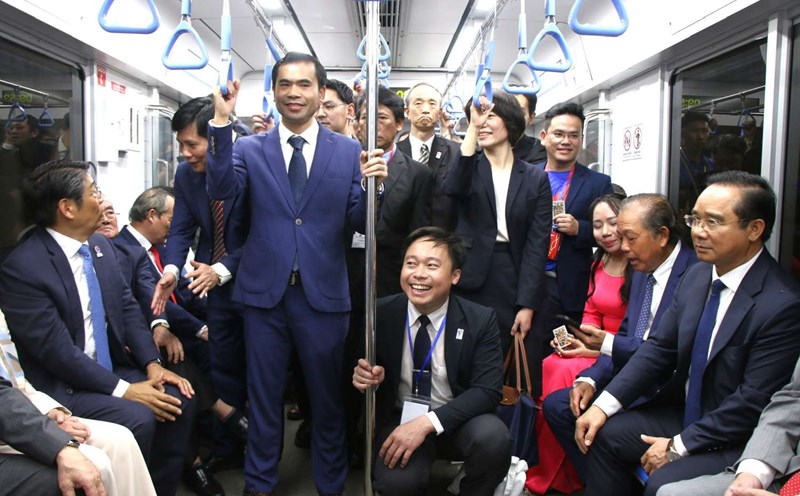Metro No. 2 to start construction at the end of 2025
On March 9, Ho Chi Minh City officially inaugurated Metro Line 1 after nearly 3 months of operation. With more than 5.3 million users in a short time, the city's first metro line has far exceeded expectations, showing great demand for modern public transport.
In particular, the National Assembly's approval of Resolution 188 allowing Ho Chi Minh City and Hanoi to apply a special mechanism to develop metro is considered an important boost. This will be the premise for Ho Chi Minh City to synchronously deploy 7 metro lines with a total length of 355km in the next decade.
According to Mr. Phan Cong Bang - Head of the Ho Chi Minh City Urban Railway Management Board, Metro No. 2 project (Ben Thanh - Tham Luong) will be the first project to benefit from these breakthrough mechanisms. Currently, the project is completing the survey, overall technical design (FEED) and feasibility study documents to submit for appraisal in mid-2025. The city aims to approve the feasibility study report in September, organize a bidding for construction in October and start construction in December 2025.
Metro Line 2 is more than 11km long, of which 9.2km is underground and the rest is the elevated section leading to Tham Luong depot (District 12). The project includes 9 underground stations and 1 elevated station, expected to be completed and put into operation in 2030. When put into operation, this route will connect with Metro Line 1 at Ben Thanh Station and many other metro lines in the future, helping people move conveniently along the East - West axis, reducing traffic pressure for the central area.
According to Mr. Bang, a great advantage is that the site clearance of Metro Line 2 has been 99.83%, and the relocation of technical infrastructure is expected to be completed in the third quarter of 2025. Currently, the city is carrying out procedures to adjust the project and convert capital from ODA to public investment to speed up progress.
Construction of 6 metro lines will begin simultaneously from 2027
In addition to Metro Line 2, Ho Chi Minh City also plans to deploy six other metro lines, with procedures to be implemented from 2025 - 2026 and site clearance in the period of 2025 - 2027. The city aims to start construction of 6 simultaneous lines by 2027, aiming to complete the entire 355km metro by 2035.
According to Dr. Pham Viet Thuan - Director of the Ho Chi Minh City Institute of Natural Resources and Environment Economics, Resolution 188 opens up many mechanisms for capital mobilization such as the budget, urban development models according to the orientation of public transport (TOD) and issuance of government bonds. At the same time, the city has the right to self-assess, approve environmental impact assessment reports and grant licenses for the project, which will significantly shorten the implementation time compared to Metro Line 1.
Mr. Thuan proposed applying the EPC general contractor model (development, procurement, construction and handover of the entire package) to limit capital increase and delays such as Metro Line 1. According to him, this model helps ensure consistency and efficiency in project implementation. The city should encourage domestic and international consortia to increase initiative and reduce dependence on foreign partners.
Chairman of Ho Chi Minh City People's Committee Nguyen Van Duoc emphasized that as the leading economic locomotive in the country and an international trade center, Ho Chi Minh City faces many challenges related to traffic congestion, flooding, environmental pollution, etc. Investing in a metro system combined with urban development according to the TOD model is an urgent solution.
"The inauguration of Metro Line 1 is just the beginning. To realize the goal of synchronously developing the metro network, the city needs the cooperation of the entire political system, the consensus of people, businesses and support from international partners. With this determination, Ho Chi Minh City will definitely complete the modern metro system, creating a premise for sustainable development in the future" - Mr. Nguyen Van Duoc affirmed.










